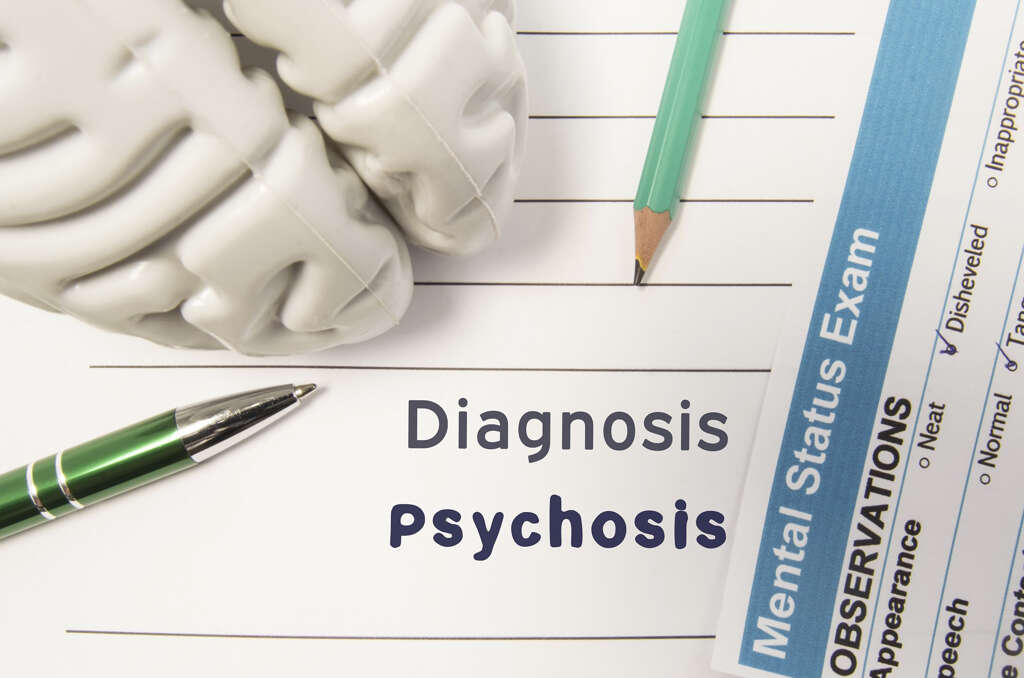10 Mania Symptoms
Mania is not a medical condition on its own, it is part of something called bipolar disorder (also called Manic-depressive illness). Bipolar disorder is a condition where the patient shifts from long periods of deep depression and maniac episodes that usually last one week.
Individuals going through a manic episode can appear to be extremely optimistic and abnormally engaged in goal-oriented activities. They can become irritable and angry. The changes that occur during mania are severe enough to cause issues or negative effects on work, school, and relationships with friends and family. Those who are close to the individual usually notice these changes.

1. Grandiosity
Those who experience grandiosity often display a sense of superiority. This means that they exaggerate their importance, knowledge, and identity. Estimates show that about 66% of those with bipolar I disorder will experience grandiose delusions at one point during their course of illness. Grandiosity is also seen among those with substance abuse disorders, personality disorders, and schizophrenia. Although a common symptom of mania, it does not occur in all individuals with bipolar disorder. Some examples of grandiosity include boasting, exaggerating one’s achievements, treating others with contempt, thinking common rules do not apply to themselves, quick to anger if challenged, not caring if their behavior hurts or affects others, and believing themselves to be more intelligent or superior to others.

2. Sleep Changes
Sleep changes are extremely common among those with bipolar disorder. During mania, the patient may experience insomnia where there is difficulty falling asleep or staying asleep. In mania, reduced sleep not only is a symptom but it can also precipitate a manic episode.
This is why sleep hygiene is essential for those with bipolar disorder. Recommendations are to go to bed and to wake up at the same time daily, avoiding heavy meals before bed, avoiding afternoon naps, and seeking professional help if the problem persists.

3. Speech
Speech changes that occur during mania is one of the easiest ways to recognize a manic episode. Some speech changes that occur during mania include incoherent speech where there is persistent rambling that cannot be understood, clang associations where words that sound similar are grouped together despite not making sense, and speech that is pressured or rapid.
In pressured speech, the speech pattern noticeably changes from their usual manner of speaking, There is a compelling desire to talk for a prolonged duration at a faster rate. The patient may also interrupt others and talk loudly. This can make the conversation hard to follow as it becomes difficult to keep up with their thoughts.

4. Thoughts
Those who know the affected individual well can easily notice the changes in their thought patterns during mania. It can appear to be nonsensical or extremely creative. In nonsensical thinking, their thoughts become disjointed and disoriented. For those who become creative, it is often perceived as an epiphany or “breakthrough.”
They may experience “flight of ideas” and “racing thoughts.” This means that their thoughts flit from one to another. It can also be a rapid stream of thoughts that can become repetitive. These issues also occur in other conditions such as anxiety, schizophrenia, and attention deficit hyperactivity disorder (ADHD).

5. Impulsiveness
Impulsiveness in mania often occurs due to impaired judgment. Those who are unaware of the patient’s condition may dismiss it as a momentary lapse of judgment or sudden burst of goodwill, passion, or generosity. The patient may display behavior that can be dangerous or risky.
Examples include a shopping spree or gambling (without limit). This impulsive behavior lacks insight and the individual often does not realize the full consequences of their actions. There can also be inappropriate and brash behavior. It can break relationships and cause financial ruin due to unlimited spending or hurtful comments and actions directed toward their friends and family.

6. Mood
Mood changes in those with mania can include extreme excitability that can suddenly shift to hostility or irritability. There can also be expansive mood, which can be described as a lavish or brash behavior. It can cause relationship and financial issues. The patient can ignore boundaries and be excessively friendly resulting in others feeling uncomfortable as they regard the behavior to be extreme or exaggerated.
They may exhibit inappropriate behavior such as making a dirty joke during a church service. In most situations, this person is unable to understand why their behavior was inappropriate and why it offended others. Most behaviors are to obtain more attention from others. When they feel dismissed, they can become irritable, which results in sudden and angry outbursts.

7. Energy
In mania, the affected individual not only has a sudden rush of energy. This energy is also overwhelming, prolonged, and relentless. This can result in a sudden increase for goal-oriented activities. Some may even start multiple projects and work throughout the day without resting to complete the project.
These individuals can become restless and are unable to remain still. When not engaged in a particular activity, they may exhibit purposeless movements. Patients may become involved in multiple activities that involves excessive planning and excessive participation. It can also manifest as increased sociability where the patient reconnects with old friends or calls strangers in the middle of the night. They can also be engaged in multiple conversations simultaneously.

8. Hypersexuality
Individuals with mania may exhibit sexually provocative behaviors and become hypersexual. It can manifest as having compulsive sex, compulsive masturbation, exhibitionism, and anonymous sex with multiple partners. This occurs as their libido drastically increases during mania.
During the manic episode, there is a need for sexual gratification. There is also a need for “forbidden” sex and their natural inhibitions are lowered. This means that the patient is more likely to do things that they normally would not do. Issues such as hypersexuality often put relationships at risk. It also increases the likelihood of contracting sexually transmitted infections (STIs).

9. Distractibility
Patients suffering from bipolar disorder may appear to be distracted from time to time. The increased energy and racing thoughts make it difficult for patients to stay focused on one thing at a time.
It is important to notice that everyone can be distracted without being associated with any medical conditions. Stress and other situations may cause an individual to lose focus. The main difference is that, in patients with a manic episode, the problem is severe enough to disrupt their normal routine or change their usual behavior, causing problems with their family, friends, or coworkers.

10. Psychosis
Psychosis can occur in patients with bipolar disorder in both the depressive or manic state. It can be defined as a break from reality and generally requires hospital admission and medical treatment. Those with psychosis may experience hallucinations where they feel, smell, see, touch, or hear things that are not real.
Examples include hearing voices, seeing those who have died, and more. There can also be delusions where the patient firmly believes in a false belief even when it can be logically explained to be false. Some also have extreme paranoia. This can be dangerous to both the patient and those around them. An example would be believing that the government is tracking them through devices implanted in their body. Psychosis is not unique to bipolar or mania. It can also occur in other psychiatric conditions like depression, schizophrenia, and substance abuse.











